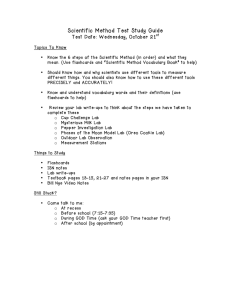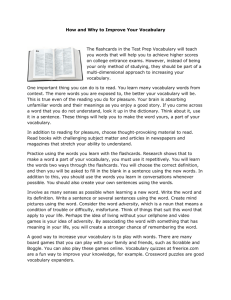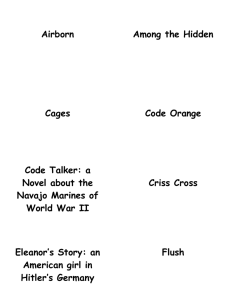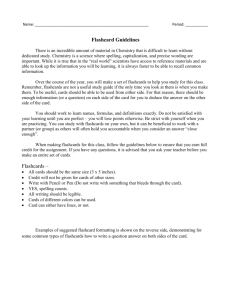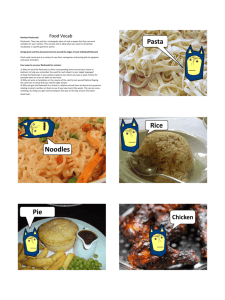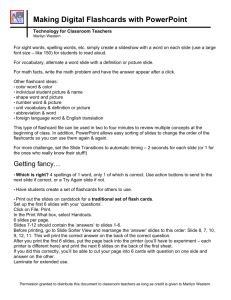Superbabies
advertisement
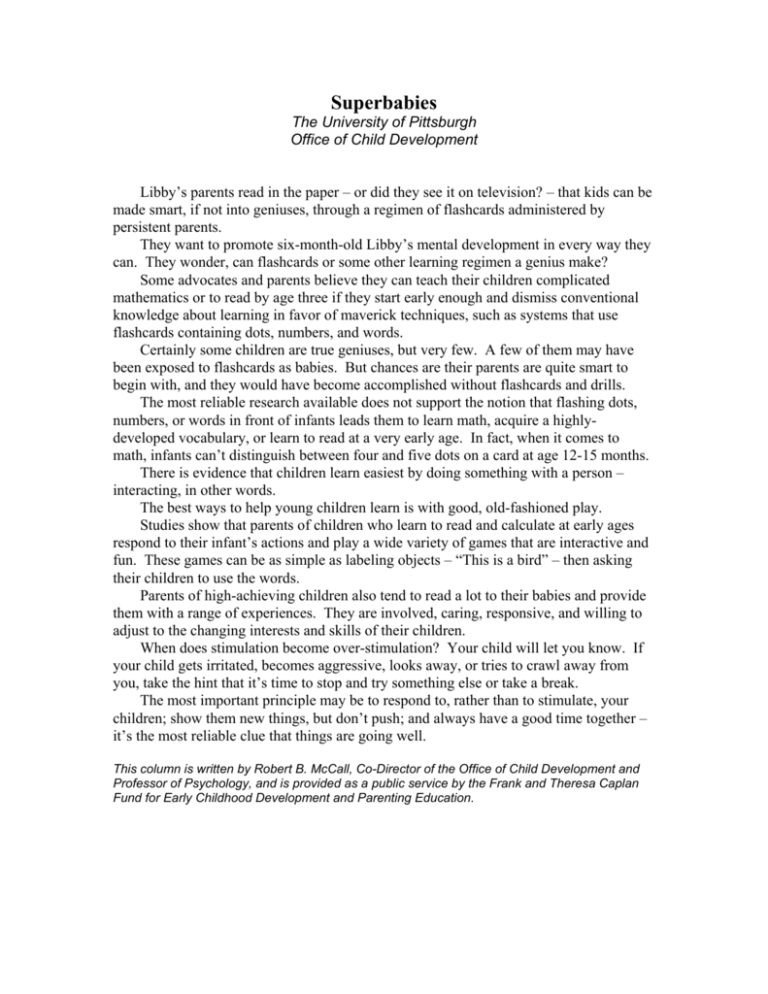
Superbabies The University of Pittsburgh Office of Child Development Libby’s parents read in the paper – or did they see it on television? – that kids can be made smart, if not into geniuses, through a regimen of flashcards administered by persistent parents. They want to promote six-month-old Libby’s mental development in every way they can. They wonder, can flashcards or some other learning regimen a genius make? Some advocates and parents believe they can teach their children complicated mathematics or to read by age three if they start early enough and dismiss conventional knowledge about learning in favor of maverick techniques, such as systems that use flashcards containing dots, numbers, and words. Certainly some children are true geniuses, but very few. A few of them may have been exposed to flashcards as babies. But chances are their parents are quite smart to begin with, and they would have become accomplished without flashcards and drills. The most reliable research available does not support the notion that flashing dots, numbers, or words in front of infants leads them to learn math, acquire a highlydeveloped vocabulary, or learn to read at a very early age. In fact, when it comes to math, infants can’t distinguish between four and five dots on a card at age 12-15 months. There is evidence that children learn easiest by doing something with a person – interacting, in other words. The best ways to help young children learn is with good, old-fashioned play. Studies show that parents of children who learn to read and calculate at early ages respond to their infant’s actions and play a wide variety of games that are interactive and fun. These games can be as simple as labeling objects – “This is a bird” – then asking their children to use the words. Parents of high-achieving children also tend to read a lot to their babies and provide them with a range of experiences. They are involved, caring, responsive, and willing to adjust to the changing interests and skills of their children. When does stimulation become over-stimulation? Your child will let you know. If your child gets irritated, becomes aggressive, looks away, or tries to crawl away from you, take the hint that it’s time to stop and try something else or take a break. The most important principle may be to respond to, rather than to stimulate, your children; show them new things, but don’t push; and always have a good time together – it’s the most reliable clue that things are going well. This column is written by Robert B. McCall, Co-Director of the Office of Child Development and Professor of Psychology, and is provided as a public service by the Frank and Theresa Caplan Fund for Early Childhood Development and Parenting Education.
